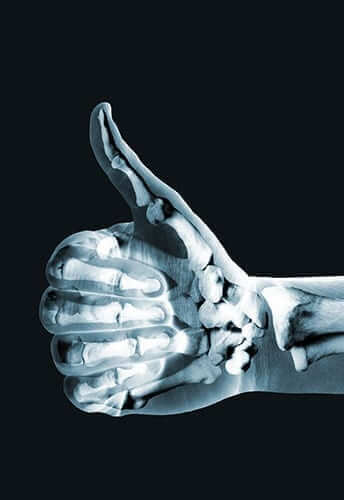What Is Normal And What To Expect?
Normal healthy aging shows signs of physical changes on the outside of our bodies. Think about the sun/brown spots that appear, along with gray hair, wrinkles, a double chin and more flab especially around the middle section. Actually, these concerns can easily be dealt with by spending money, time and the will or desire to see a change in physical appearance. The American Society for Aesthetic Plastic Surgery states “Americans spent over 12 billion dollars on cosmetic surgery in 2013 alone”. Each year the numbers keep rising with over 1.7 million invasive cosmetic surgical procedures and 14.2 million minimally invasive cosmetic procedures performed in 2015. Hair salons have rocketed in numbers and offer all kinds of treatments to make hair fuller, shinier, straighter or curlier with color and highlights. Others happily accept growing older with the common physical changes “gracefully”.
What about what happens to the inside of our body as we age? Do most of us recognize the internal changes and do we spend the time, money or concern on what is happening on the inside? This may not be as obvious to some of us.
Let’s look at some of the more common issues of “aging on the inside” and what can be done to offer help and improvement. This should catch the attention of all of us as we age.
Heart Changes

How to Encourage a Healthy Aging Heart
Call it what you want or if you hate to “exercise” because it conjures up “a vision of a gym rat in spandex” but movement should be the focus as we age. All research relating to exercise has been positive especially on those aging with diabetes. A simple 30-minute daily walk is enough to make positive changes. Water exercise is at the top of the list since it is gentle on the joints, ligaments and muscles. It is perfect for people who suffer from arthritis or orthopedic problems. The biggest patient complaint I hear about swimming is “putting on a bathing suit or finding one that fits”. Today’s styles are more flattering and new fabrics stand up a lot better to figure flaws. Again, we are all trying to “age gracefully”. Incorporate DVDs, TV programs, group hikes, local walking, YMCA or local fitness community groups, Zumba, aerobic classes, Pilates, yoga, stretching bands or weights. Any movement is better than none!
Blood Sugar Control Matters
The single best thing you can do for your heart when you have diabetes is keep your A1C controlled at 7% or below. If you already have existing heart issues then speak to your health care provider. More physicians now advocate “an existing heart problem especially in an aging patient should allow for a higher A1C value of 7-8%”. The fear of low blood sugar increases as we age with a pre-existing heart condition. Keeping blood sugars controlled takes a special commitment from you, your family and your health care provider. It never ends or takes a break. Get educated on what you need to do and keep reading.
Smoking?
Not only does smoking age the skin on the outside causing deep wrinkles around the mouth and face, but it takes a big hit on your heart muscle and lungs. It increases artery stiffness and causes change at a cellular level. Smoking is “as addictive as cocaine and heroin” but still remains legal. The blood flow and oxygen to the muscles are reduced because of carbon dioxide in the tobacco smoke. Smoking leads to fatty material build up called plaque, a waxy material that hardens and narrows the vessels. It can lead to chest pain, heart arrthymias, heart failure and peripheral arterial disease as well as asthma, COPD and lung cancer.
Improved Food Choices

Anxiety/Stress
Stress and anxiety takes aim at the outside of the body in the form of wrinkles, pimples, hair loss, weight gain, weight loss as well as the inside. It is interesting to see how different people deal with the same exact situation by showing varying coping skills. Find what works for you – check smartphone apps, go for counseling, socialize, volunteer, prayer or medication if no other solutions work. Stress can affect heart health and stomach health along with lowering the function of the immune system. People with diabetes already have a reduced immune system when blood sugars are elevated. Keep stress in check at all costs.
Get Your ZZZZZZS
I counseled a 34-year old man with diabetes who worked from 8PM-8AM and decided he had no time to sleep since life gets in the way, except between 2:00-4:00PM. He said 2 hours was more than enough and that he did not need to sleep. Actually he was seeing me since his blood sugars were way out of control as was his blood pressure. He already had a heart stent at age 34! He had no idea that sleep is restorative and that he was raising his insulin resistance by not sleeping enough. Again, each person is different but the general guidelines suggest “7-8 hours of uninterrupted sleep for the best healing”.
Joints, Bones and Muscles
Aging takes aim on our joints, bones and muscles. The bones generally shrink and lose density which causes a physical decrease in height and a bigger risk for fractures and breaks. Muscles loose strength, size and ligaments lose flexibility. Coordination decreases and balance suffers resulting in more falls, injuries and possible surgeries and hospitalizations. Fat increases as muscles are lost since muscle keeps our metabolic rate higher.
Encouraging Healthy Aging of Bones, Muscles and Joints
What to do to encourage healthy aging of bones, muscles and joints? Add weight-bearing exercise to your program to encourage bone building. You can use free weights, weight machines or simple home products such as cans or containers. You can use pulley systems or bands which will all help with bone growth. Weight-bearing aerobic exercise is also worthwhile and includes walking, jogging, running and climbing steps. Osteopenia and osteoporosis are not only a problem for women so men need to engage in bone growth activities as well. Yoga is a nice alternative yet puts pressure on bones for bone growth.
Calcium

The two optimal forms are calcium carbonate and calcium citrate. Take calcium carbonate with food since it requires stomach acid. Elderly people secrete less stomach acid and should take calcium citrate on an empty stomach. Most adults require 1200mg a day which should be split into two doses since only 500-600mg are absorbed at one time. Vitamin D should be added to calcium for strong bone health. Sun is an excellent source and you should consider 15 minutes a day without sunscreen for boosting vitamin D. Include foods such as egg yolks, fortified milk, oily fish or supplements if needed. Liquid vitamin D is more easily absorbed than pill or capsule form. Vitamin K rounds out the supplements for bone health and strength. Foods high in Vitamin K are leafy greens, prunes, carrots, sprouts and sun dried tomatoes.
The G.I. System is Affected as We Age
Many older adults suffer with gastric reflux and constipation. People with diabetes have a high incidence of constipation and gastroparesis since they both have nerve involvement. Gastroparesis is when the stomach does not empty properly causing bloating, fullness, lack of appetite and erratic blood sugars. Taking multiple medications, a diet low in fruits, vegetables and water, lack of exercise and fiber can all lead to constipation. Gastric reflux can occur from your lifestyle: eating late, lying down flat after eating, high stress, smoking, a hiatal hernia, drinking too much alcohol, are all factors. Food choices that include caffeine, carbonation, citrus, and mint, chocolate and larger food amounts can add to gastric reflux and acid problems.
Keeping G.I.System Running Smoothly
What to do to keep your G.I. system running smooth. Consider staying hydrated with non–caloric beverages, eating small portions through out the day, staying active, include whole grains and legumes in moderation along with fruits and vegetable and consider taking a pro-biotic and a fiber supplement.
The Bladder and Urinary Tract System on Aging.
Urinary incontinence increases as we age and is often common in people with diabetes, menopause or an enlarged prostate. Promoting a healthy urinary tract system is easy to do as we age. Stay hydrated with non- irritating fluids such as water. Bladder irritants include caffeine, alcohol, carbonation and often artificial sweeteners. Encourage scheduled times to use the bathroom and do not ignore urges. Holding urine often promotes UTIs especially in women. Talk to your MD about taking a cranberry supplement which helps decrease bacteria sticking to the bladder. Cranberry juice contains too much sugar for those with diabetes.
The Aging Brain
Being more forgetful as we age is common and it takes longer to learn a new task. Obviously some brain changes are normal and some are not. If you are suffering from extreme changes in memory or thought process or depression, please consult your physician.
Brain Focus and Sharpness

Eyes, Ears, Teeth and Skin
Eyes, ears, teeth and skin are affected as we age. Minimal changes are not an issue but significant changes can have an impact on your everyday life. Vision, hearing and gum disease are more obvious as we age. Skin becomes thinner and more fragile. Older people bruise more easily and often tear their skin leading to infections. The skin loses elasticity due to a decrease in oil production and fat pads underneath thin out causing a hollow look.
Finally, How to Promote Eye, Ear, Teeth and Skin Health
Make sure you get on a schedule for check-ups with your optometrist, ophthalmologist, dermatologist and dentist. Schedule an annual hearing test with a hearing specialist or ENT. These specialists will help you determine how often you need to be screened. People with diabetes are more prone to cataracts, glaucoma, and retinopathy and should be examined frequently. Eyeglass prescriptions should be monitored since older eyes do change. Wear sunglasses with ultra-violet protection when possible to help protect your eyes.
Dry mouth and gingivitis increase with age often due to multiple medications and are more common in diabetes. Keep up with brushing, flossing and using a water pick. Purchase dry mouth products like Biotene which encourages saliva formation. Chew sugar-free gum with Xylitol and schedule regular cleanings. The number one thing to protect your skin is to wear sunscreen with a SPF of at least 30. Sunscreen should be applied daily, even on overcast days, and when not actually sitting in the sun. Sun exposure is cumulative and more problems creep up as we age. More sun exposure equals more skin damage and chance for skin cancer. Wear a hat with a large brim when in the direct sun as well as sunglasses. Use a mild face wash since oil production is down and moisturize daily.
Aging is a normal part of life inside and outside. There are ways of aging healthy and gracefully if we take the time to focus on simple lifestyle changes just as we should to help control diabetes.
Have a question or comment? Post below or email me at [email protected] if you would like to share them with ADW diabetes.
NOTE: Consult your Doctor first to make sure my recommendations fit your special health needs.













Leave A Comment